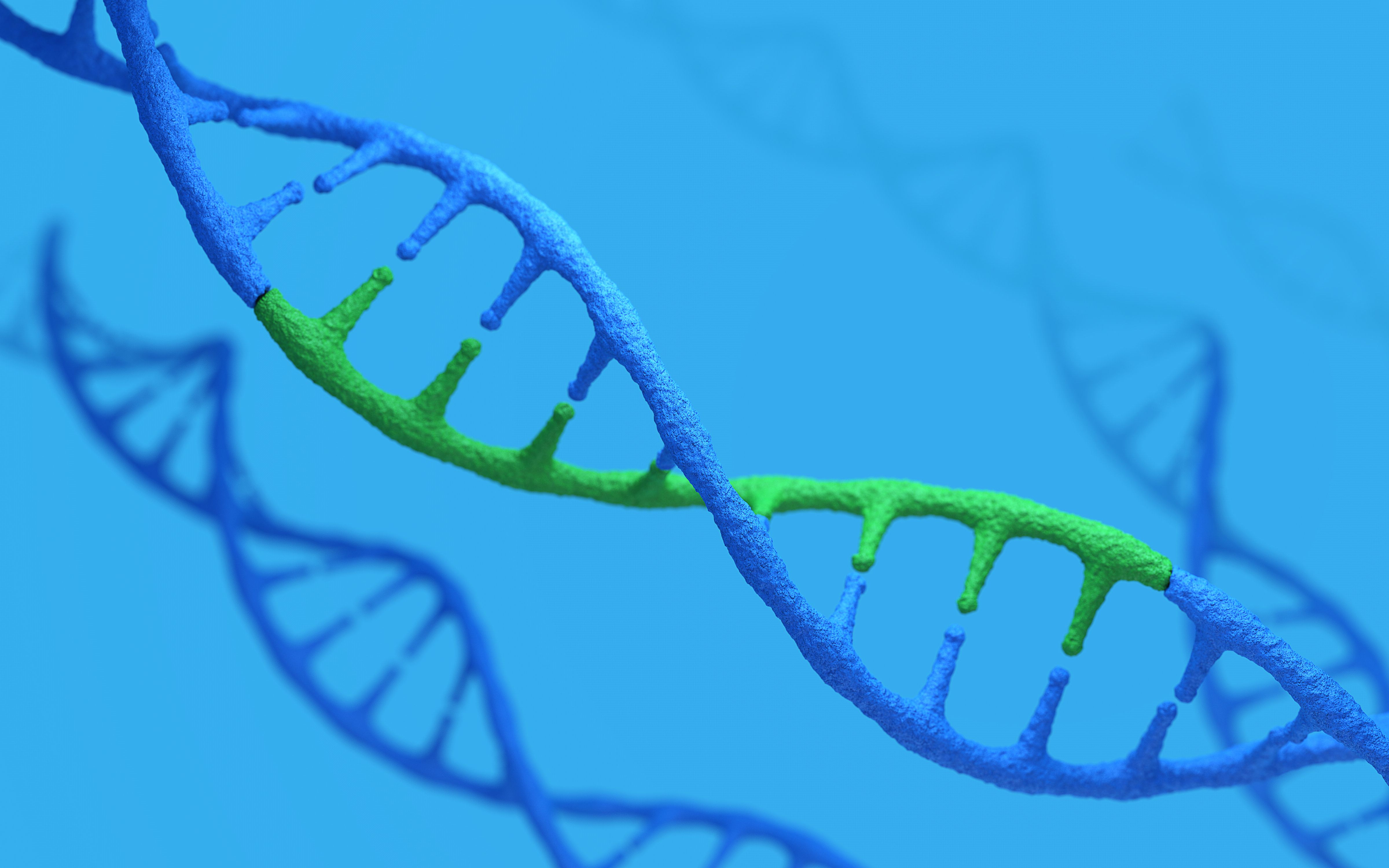- Center on Health Equity & Access
- Clinical
- Health Care Cost
- Health Care Delivery
- Insurance
- Policy
- Technology
- Value-Based Care
Exploring the Impact of TP53 Alterations on miR-34a and NOTCH1 in CLL
New study provides insights into the relationship between TP53, miR-34a, and NOTCH1 in CLL cells.
Findings from a recent study explored the impact of TP53 alterations on the NOTCH1 and miR-34a signaling network in chronic lymphocytic leukemia (CLL). In the study, published in Leukemia & Lymphoma, researchers aim to clarify the relationship between TP53, miR-34a, and NOTCH1 in CLL cells.1
TP53 mutations or deletions are associated with poor prognosis and reduced expression of miR-34a, a micro-RNA known to target NOTCH1.2 The results of the present study showed that miR-34a expression is directly upregulated by the protein p53, and this upregulation correlates with an increase in NOTCH1 protein levels. Researchers found in CLL cells with wild-type TP53, activation of p53 led to an increase in miR-34a expression, which in turn reduced NOTCH1 levels. However, this regulatory effect was disrupted in cells with TP53 mutations, leading to lower miR-34a levels and, consequently, higher NOTCH1 activity.
Understanding genetic alterations in CLL could improve personalized medicine strategies | image credit: Shuo - stock.adobe.com

Researchers utilized a range of CLL cell lines and primary samples from patients to assess the relationships between TP53 status, miR-34a expression, and NOTCH1 signaling. In TP53 wild-type cell lines (HG3, WA-OSEL, and EHEB), treatment with Nutlin-3a at 24-, 48-, and 72-hour intervals resulted in a marked upregulation of miR-34a expression. MiR-34a levels increased significantly in EHEB and WA-OSEL cells after 48 hours of Nutlin-3a treatment (P = .0266 and .0761, respectively). In contrast, TP53-mutated cell lines (MEC-1 and MEC-2) showed no significant change in miR-34a expression following Nutlin-3a treatment.
The impact of miR-34a on NOTCH1 was further validated using luciferase reporter assays. In these experiments, transfection of HEK293 cells with an hsa-miR-34a precursor miR-34a significantly decreased the activity of a reporter construct containing the NOTCH1 3' untranslated region (3' UTR) (P < .0001). This reduction was not observed in reporters lacking miR-34a binding sites. However, when miR-34a was overexpressed in TP53-mutated CLL cells, there was no significant change in NOTCH1 protein levels or signaling activity. "Our results indicate that miR-34a reduces NOTCH1 3' UTR activity but might not be a mediator between p53 signaling and NOTCH1," the authors noted.
Researchers further explored the relationship between p53 and NOTCH1 in CLL cells by treating both TP53-mutated (MEC-1) and TP53 wild-type (WA-OSEL) cells with Nutlin-3a or transfecting them with either a p53 overexpression plasmid or p53-targeting shRNA. Western blot results showed that Nutlin-3a increased p53 and NOTCH1 protein levels in WA-OSEL cells but not MEC-1 cells. In WA-OSEL cells, overexpression of p53 led to an increase in NOTCH1 signaling activity (P = .0517), while p53 knockdown showed a trend toward decreased activity. No significant changes were observed in MEC-1 cells. "The observed increase in NOTCH1 levels upon p53 activation or overexpression is in line with previous reports indicating that NOTCH1 is a direct transcriptional target of p53," the authors added.
Primary CLL cells from patients with altered TP53 (either mutated or deleted) showed significantly lower miR-34a expression than those with wild-type TP53 (P =.0007). This finding was consistent with previous studies highlighting miR-34a's role in regulating apoptotic pathways.3 Additionally, NOTCH1 protein levels were markedly reduced in TP53-mutated patient samples, suggesting “that the loss of p53 function may contribute to reduced NOTCH1 expression in these cases, potentially impacting disease progression and treatment response,” the current authors note. Furthermore, some CLL samples with high NOTCH1 levels also showed increased expression of BCL-2, "suggesting a potential anti-apoptotic mechanism associated with NOTCH1 expression in CLL cells."
"Ultimately, a better understanding of the p53-miR-34a-NOTCH1 axis may pave the way for personalized medicine strategies that enhance prognosis and treatment outcomes for CLL patients with poor prognosis."
References:
- Ehrmann AS, Zadro A, Tausch E, Schneider C, Stilgenbauer S, Mertens D. The NOTCH1 and miR-34a signaling network is affected by TP53 alterations in CLL. Leuk Lymphoma. 2024:1-13. doi: 10.1080/10428194.2024.2392839
- Rossi D, Rasi S, Fabbri G, Spina V, Fangazio M, Forconi F, Marasca R, et al. Mutations of NOTCH1 are an independent predictor of survival in chronic lymphocytic leukemia. Blood. 2012;119(2):521-9. doi:10.1182/blood-2011-09-379966
- Zenz T, Mohr J, Eldering E, Kater AP, Bühler A, Kienle D, et al. miR-34a as part of the resistance network in chronic lymphocytic leukemia. Blood. 2009;113(16):3801-8. doi:10.1182/blood-2008-08-172254
